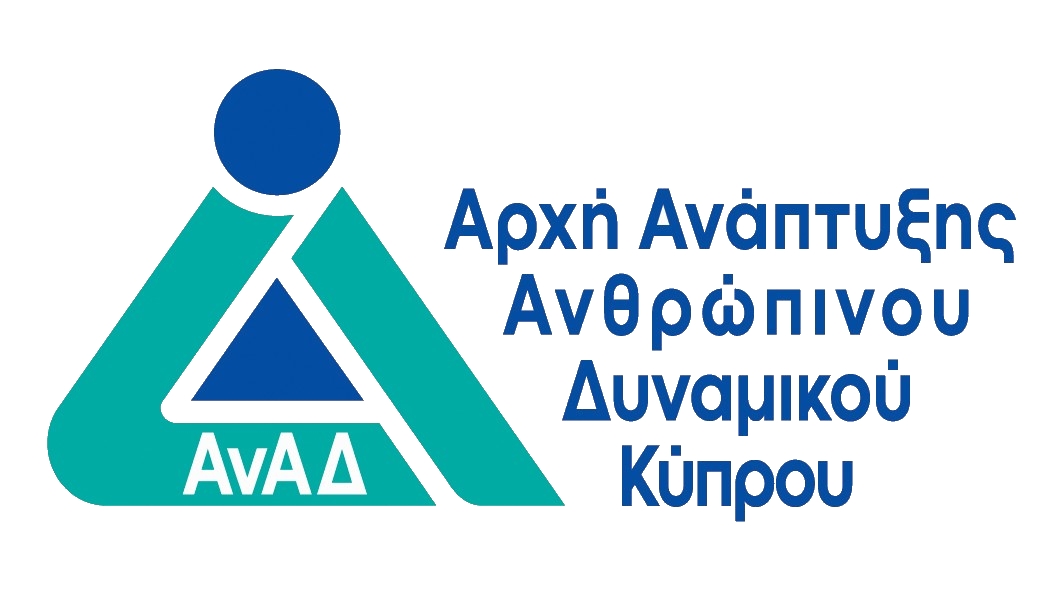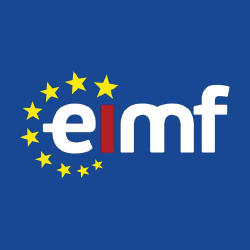
AML Compliance in the Betting and Gaming Sector
- Χρηματοοικ. Ασφαλιστικά Τραπεζικά - Νομοθεσία, Νομική & Δικηγόροι - Τέχνες/ Ευεξία/ Μόδα/ Sports

ΠΕΡΙΓΡΑΦΗ
Betting and gaming companies, such as casinos, were historically known as being vehicles for money laundering of all kinds and funding of illicit activity. Recent years have seen a significant change in the sector, particularly from a regulatory perspective. There is a perception by many that the industry is lacking in regulatory pressure, which makes it a particularly attractive route for money laundering and terrorist financing.
Betting and Gaming has changed in the last years, mostly shifting to online, with online slot machines, casino games and sports betting becoming increasingly popular. This shift has meant that betting and gaming platforms can be accessed internationally, and payments and withdrawals can be processed at a much faster rate.
The growth of online and mobile channels has added to the challenge of keeping the industry operating within required regulations. Significant risks exist within this sector, largely due to its size, the volume of transactions and the number of people who participate.
Companies that are regulated by the National Betting Authority of Cyprus and the Cyprus Gaming Commission need to practise safe gaming and comply with the Anti-Money Laundering legislation in place, and with the Legislative framework of gaming regulation, in general. The main purpose of these regulations is to minimize or eliminate money laundering and terrorist financing risks in this sector.
ΣΚΟΠΟΣ ΣΕΜΙΝΑΡΙΟΥ
By the end of the programme, participants will be able to :
- Explain the EU and local legal framework regarding Betting and gaming
- Clarify the different types of financial crime
- Describe the AML procedure to be followed by the various authorities and stakeholders
- Identify financial crime risks specific to the organization
- List the Money laundering risks in each of the gaming sectors
- Describe compliance best practices and insights for gaming
- Expand your knowledge on gaming customer due diligence
- Name emerging technologies and trends in customer onboarding and reporting
- Describe High value customer and politically exposed person risk and mitigation
- Identify and escalate suspicious activity
- Develop an overview of the international gaming market
- Perform the relevant actions based on the legislative framework of gaming regulation
- Explain the regulatory context for the industry
- Develop a robust risk management program
- Explain the key information you need to collect from your customers
- Explain the Risk based approach to be followed
- Develop the skills to assess and mitigate money laundering risks
- Choose practical AML in operation including customer due diligence and transaction monitoring
- Explain how to report suspicious activity and unusual transactions
ΣΕ ΠΟΙΟΥΣ ΑΠΕΥΘΥΝΕΤΑΙ
The programme is ideal for
- C-Level executives (Managing Directors and CEOs, COO)
- BoD members.
- AML compliance officers
- Risk Officers
- Financial controllers
- Accountants
- Lawyers in:
- Betting companies
- Gaming and casino industry
- Regulatory Authorities
- Law Firms and Legal Consultants
- Financial Services Providers
- Software/Technology Providers
- Consulting Firms
- Sports Federations
ΠΕΡΙΣΣΟΤΕΡΕΣ ΠΛΗΡΟΦΟΡΙΕΣ
Training Outline
Essential AML Concepts
- Money laundering methods, techniques, red flags, key risk areas and compliance best practices & checklists
- Global AML Standards
- The AML Compliance Program
National Regulatory Framework
The Betting Law of 2019 (L.37(I)/2019)
Directive of the Prevention and Suppression of Money Laundering
- Obligations of Obliged entities)
- BoD responsibilities
The role of the National Betting Authority & Casino Gambling Commission
Legal Obligations of the regulated entities
Operating license (on spot/land based and online) and regulation for:
- Gaming (casino, poker)
- Betting (wages on sporting and other events)
- Retail areas
- Virtual sports
- Bookmakers and betting shops
- On course betting
- Lottery games
- E-Sports betting
- Casinos-slot machines and table games
European Regulatory Framework (EU) Regulation 2016.679
- EGBA Factsheets
- EU Whistleblowing Directive — what’s in for betting and gaming industries?
- Consumer protection
- AML & 6th Directive
AML Compliance for betting & gaming
- Globalization vs AML Regulation in the Gaming Industry
- Best Practices for AML Compliance for land based and Online betting and gaming), physical and legal entity:
- 5th AMLD
- 6th Directive and predicate offences
- Risk Based Approach (risk detection, recording and assessment)
- KYC (PEPs, CEP’s,MEP’s, UBO)
- SDD and EDD (checking clients’ source of funds, Adverse Information and Media
- CDD (company obtains the customer’s information to verify their identity and evaluate whether they are involved in any crime.)
- Customer screening for faster Onboarding & Monitoring
- Ongoing DD
- Transaction monitoring and screening
- UN and EU Sanctions and watchlists
- Employee training
- FATF
Compliance for betting: How to detect and prevent problem gaming
- Set-up a compliance program
- The role of the AMLCO officer
- Internal Procedure and Control
- Risk management
- Report of suspicious activities (MOKAS)
- Record keeping and period of record keeping
- Annual report
The role of the Auditing firm
- Checking the customer’s age
- Checking the source of funds: (transparency)
- Problem gaming behavior.
Use of Technology to combat crime
- Fintech technology
- Crypto payments: Cryptocurrency, Blockchain
- Virtual currencies
FinCrime in gaming and gaming industry
- Cybercrime
- Examples of cybercrime
The role of other supervisory authorities to AML in gaming and gaming:
- Central Bank of Cyprus
- CySEC
- ICPAC
- CyBAR
The role of Banks and payment institutions to prevent AML
Internet services provider
GDPR
- Customer data controllers and ors
- Data SAR
Offences and Penalties
- Administrative fines ( article 95 of he Betting LAW (I)/2019 )
Industry Expert | Christina Thakor-Rankin
Christina has over 25 years’ experience working in the betting and gambling industry with a career in both land and online gaming, across all aspects of gaming operations, regulatory compliance and money laundering.
Having previously held senior roles with a number of leading gaming brands managing multiple and diverse functions and teams across a range of channels and products and customers, she is currently Principal Consultant at 1710 Gaming Ltd working with start-ups, investors, established operators, regulators, law enforcement and industry groups across the world, advising on all aspects of the betting, gaming and gambling cycle – from market research and analysis, to licensing and compliance, products and marketing, project management and business strategy, to full operational set-up and customer engagement.
Recent projects include national self-exclusion, full operational start up and platform migrations, drafting of regulations and training of law enforcement agencies as well as undertaking the role of Regulatory Compliance Officer and MLRO for active licences across a number of jurisdictions.
Christina is a regular contributor to industry publications and events, as well as providing pro bono services to responsible gambling organisations. She holds an honours degree in Law and Politics and a Masters in Classics.
Training Style
A detailed 12-hour 3-day session with case studies, practical exercises, and direct-action points that will help keep your organisation compliant and its employees and customers safe.
The programme is designed to deliver knowledge and enhance participants’ skills via short lectures, case-studies, practical examples, real-life simulations. Most of the training will focus in assessing participants’ current strengths and weaknesses via formal assessment tools. Participants will also benefit from customised feedback at the end of the programme and take away the knowledge gained to be transferred at their workplace. Most of the training’s time will be invested in analysing a real-life case study that will help participants understand how to solve problems in similar occasions.
CPD Recognition
This programme may be approved for up to 12 CPD units in Financial Regulation, AML and Fraud. Eligibility criteria and CPD Units are verified directly by your association, regulator or other bodies which you hold membership.
Αναλυτικό Κόστος Σεμιναρίου
Για Δικαιούχους ΑνΑΔ
- € 530.00
- € 204.00
- € 100.70
- € 326.00
- € 387.94
Για μη-Δικαιούχους ΑνΑΔ
- € 530.00
- € 0.00
- € 100.70
- € 530.00
- € 630.70
ΠΡΟΓΡΑΜΜΑ ΣΕΜΙΝΑΡΙΟΥ
Παρασκευή - 18 Νοε 2022
Ώρα
09:00 - 13:30
Τοποθεσία:
OnLine Virtual Classroom
Τετάρτη - 23 Νοε 2022
Ώρα
09:00 - 13:30
Τοποθεσία:
OnLine Virtual Classroom
Παρασκευή - 25 Νοε 2022
Ώρα
09:00 - 13:30
Τοποθεσία:
OnLine Virtual Classroom
 Ελληνικά
Ελληνικά  English
English



 Αγγλικά
Αγγλικά
 12 ώρες
(
3 μέρες
)
12 ώρες
(
3 μέρες
)













































